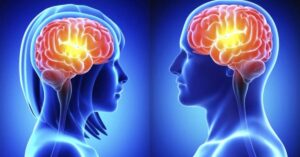Peptides are short chains of amino acids, which function as building blocks for proteins. They play very crucial roles in many biological processes including hormone production, signaling through cells, and tissue repair. Recently, peptides have gained much attention for their wide range of therapeutic applications in weight loss and metabolic control.
The function of peptides in dieting
These peptides progress weight loss by promoting fat metabolisim, reducing appetite, increasing energy expenditure, and preserving muscles. Some of these peptides target pathways involved with hormones in regulating hunger and energy utilization as well as breakdown of fats to increase body weight reduction and composition.
Mode of Action:
Peptides basically work to advance fat loss through interventions in the metabolic and hormonal systems of the body.
• Hormone Modulation: the peptides increase the activity of hormones such as GLP-1 and growth hormone which decrease appetite, vary blood sugar, and break down fat.
• Lipolysis: They enhance the rate of stored fat breakdown into free fatty acids for energy utilization.
• Mitochondrial Activity: Peptides increased mitochondrial activity, thus burn more calories and metabolism.
• Muscle Retention: Since peptides cause lean muscle mass, they retain the muscles when calorie intake is reduced.
How to Get Peptides Naturally or Through Supplements

There is also natural gain of peptides in terms of a balanced diet with abundant proteins. The sources for peptides include lean meats, fish, dairy, eggs, beans, and lentils, whose protein will break down to form peptides, indirectly supporting muscle growth, metabolism, and other health issues to promote the losing of weight.
Peptide Supplements
There is the injection, powder or capsule forms of peptide supplements. It may target very specific goals in weight loss examples: GLP-1 agonists, growth hormone secretagogues, or perhaps more directly, mitochondrial peptides such as MOTS-c. Only a doctor should allow them to be taken by any person for safety and efficacy.
Lifestyle Support
Combination with healthy nutrition and exercise will maximally optimize the benefits from any natural or supplementary peptides. Strength training, aerobic activities, and nutrient-dense foods enhance fat loss while promoting energy and preserving muscles during weight loss.
Reducing weight by taking peptides as supplements

GLP-1 agonists
Examples: Semaglutide, Tirzepatide. Mechanism and advantages: GLP-1 agonists are drugs acting as GLP-1 receptor agonists. GLP-1 is the hormone involved in the regulation of levels of blood sugar, stimulate the release of insulin and delays gastric emptying. This results in increased levels of long-term satiation, decreased hunger, thus leading to decreased caloric intake.
Growth hormone secretagogues (GHS)
Examples: CJC-1295, Ipamorelin. Role in fat metabolism and muscle preservation: GHS peptides are involved in the release of growth hormone, which is highly important for fat metabolism and muscle preservation. The peptides increase the quantity of growth hormone that is beneficial for lipolysis.
MOTS-c
Mitochondrial function and energy regulation: MOTS-c is a secreted peptide by the mitochondria, promoting cellular energy production and metabolism. It activates pathways and increases glucose uptake as well as usage of fats, therefore enhancing body energy efficiency with simultaneous improvement of fat loss.
AOD-9604
Targeted fat loss: AOD-9604 is a synthetic peptide fragment from human growth hormone (HGH). It selectively acts on the fat cells to trigger lipolysis without causing adverse effects of full HGH. AOD-9604 stimulates fat loss with the lean body mass preserved, and thus it is regarded as an ideal compound for targeted weight loss.
Melanotan II
Appetite suppression and side effects: Melanotan II is a peptide and although it plays a role for stimulating melanin to get the skin darker, yet as a peptide it has an appetite suppression-related secondary effect to it that helps in loss of weight indirectly.
The benefits of peptides in losing weight include:
Increase fat burning: Peptides trigger the greater breaking down of fats and increase stored fat in the body as energy fuels.
Better regulation of appetite: Some peptides regulate the hormones that trigger hunger feelings and lead to lesser intake of food and calories.
Maintenance of muscles: Growth hormone secretagogues help preserve the lean muscle during weight loss, preventing muscle breakdown.
Elevated Metabolism: Peptides increase the rate of metabolism and energy expenditure meaning burn more calories.
Targeted loss of body fat: Some peptides, such as AOD-9604, target fat cells so that fat is lost without any systemic side effects.
Enhanced energy: The peptides MOTS-c enhance the mitochondria’s function and thereby enhance total energy as well as reduce fatigue.
Advantages of Supplementation in Weight Loss
Increased fat burn: Peptides enhance fat breakdown and increase the consumption of reserved fat for energy.
Metabolism boost: these peptides increase the metabolic activity and energy expenditure that lead to burning more calories.
Targeted fat loss: Some peptides, such as AOD-9604, target fat cells specifically for the enhancement of fat loss without systemic side effects.
Increase energy : Peptides such as MOTS-c improve mitochondrial function which in turn raises the general levels of energy while lowering fatigability.
How to Lose Weight Naturally
Healthy Diet
Focus on whole, nutrient-dense foods, such as fruits, vegetables, lean proteins, whole grains, and healthy fats, for long-term weight loss success. Avoid processed foods, sugar-sweetened beverages, and excessive refined carbohydrates.
Regular Physical Activity
Aerobic exercises include walking, running, cycling, and strength training to burn calories, improve metabolism, and preserve muscle mass during weight loss.
Mindful Eating
Practice portion control, eat slowly, and listen to hunger cues. Mindful eating helps in avoiding overconsumption and building healthier relationships with food.
Lifestyle Changes and Consistency
Long-term weight loss can only be achieved with continuous effort and sustainable lifestyle changes. Shun diet fads and focus more on building healthy habits that one can keep up over time.
Hydration
Drinking enough water increases metabolism, reduces hunger, and avoids overeating. This is a great way to cut down on calorie intake of sugary drinks by substituting them with water or herbal tea.
Sleep and Stress Management
Control your hunger and metabolism hormones by spending 7-8 hours of quality sleep each night. Overeating stress needs to be controlled by meditation, yoga, or deep breathing.
Advantages of Natural Weight Loss
Improved Overall Health
Natural weight loss includes dietary health and exercise, thereby promoting heart health, reducing the rate of blood pressure, and risk of developing other diseases such as diabetes, heart diseases, and other cancer-related conditions.
Durable Outcome
Weight loss through natural measures aims at durable long-term changes in lifestyles. As a result, this mode of losing weight occurs progressively, thus there is no tendency of depending on medication and supplements for weight loss.
Boosted Energy and Moods
Regular exercise and healthy dieting enhance energy levels, improve sleep quality, and increase positive mood, releasing endorphins that strengthen the body against stress and tension.
Cost-effective and accessible
Potential Risks And Side Effects
Here’s a detailed table comparing the risks of losing weight using peptides versus natural methods:
| Category | Risks of Using Peptides | Risks of Natural Weight Loss Methods |
| Side Effects | Peptides can cause nausea, vomiting, headaches, and injection site reactions. | Side effects of natural methods include fatigue, dizziness, or irritability from drastic calorie cutting. |
| Heart Problems | Some peptides may increase heart rate or blood pressure, raising cardiovascular risks. | Extreme natural weight loss methods (e.g., fasting) may weaken the heart muscle over time. |
| Dependency | Users may become reliant on peptides for weight control, leading to long-term misuse. | No physical dependency occurs naturally, though psychological fixation on dieting is possible. |
| Metabolic Changes | Peptides can alter metabolism, potentially leading to rebound weight gain after discontinuation. | Natural methods can also slow metabolism with extreme calorie reduction, leading to plateaus or rebound weight gain. |
| Cost | Peptides are often expensive, and long-term use can add significant financial burden. | Natural weight loss methods are generally cost-effective unless expensive supplements or programs are used. |
| Unknown Long-term Effects | Long-term effects of some peptides remain unknown due to limited studies. | No unknown long-term effects occur naturally if weight loss is gradual and healthy. |
| Psychological Impact | Dependency or dissatisfaction with results can cause stress and anxiety when using peptides. | Unrealistic expectations with natural methods can also cause stress, frustration, or eating disorders. |
Key Notes:
Synthetic Peptides: Other synthetic peptides that are also used in losing weight include semaglutide, which is an analogue of GLP-1 and the GHRP. It can result in serious side effects when not used appropriately.
Endogenous Peptides: Usually associated with protein-containing food products, such as meat, egg, or dairy.
Medical Monitoring: Peptide administration for weight loss should also be medically supervised in order to prevent possible dangers.
If you have contemplated using peptides for weight loss, ensure they are from a credible source and used under medical supervision to avoid unnecessary health complications.
Conclusion
Peptides and natural weight-loss strategies offer effective solutions for fat reduction, appetite control, and improved energy. Peptides target key metabolic and hormonal pathways, while natural methods focus on sustainable habits, such as a healthy diet, exercise, and proper sleep. Combining both approaches, under professional guidance, can lead to healthier and long-term weight management outcomes.
Peptides can aid weight loss by regulating appetite, boosting metabolism, and promoting fat breakdown. They offer a promising supplement for individuals seeking efficient weight management alongside diet and exercise. However, further research and medical guidance are essential to ensure their safety and effectiveness.
FAQ’s
What are peptides?
Peptides are short chains of amino acids that provide scope for many biological processes like metabolism and fat burning.
How Do Peptides Help in Losing Weight?
Peptides facilitate the breakdown of fats by regulating appetite and energy expenditure through hormones.
Are peptide weight loss supplements safe?
When taken medically, under medical supervision, then peptide supplements can be completely safe and effective for the loss of weight.
Advantages of natural weight loss?
Natural weight loss results in healthier and more energetic and moodier overall population.
Guest Blogger and Content Writer










